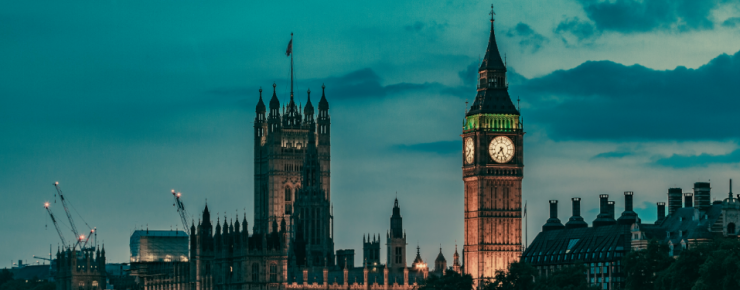This month could finally see publication of the government’s long-awaited white paper on gambling law reforms. But what is it likely to say?
We read between the lines on what is set to be the biggest reform to the UK’s gambling laws in more than a decade.
Affordability checks
“Change is needed, and change is coming”
Chris Philp, Minister for Tech and the Digital Economy, Gambling Reform Rally, March 2022
Government ministers have been clear that change is coming, saying there is an “urgent need” for reform. But what are the changes going look like?
Affordability is likely to be a key focus.
Carolyn Harris, MP for Swansea East and chair of the All-Party Parliamentary Group on Gambling-Related Harm (APPG) has said she sees affordability as one area in need of urgent reform, saying “the case for a centralised and independent affordability assessment is overwhelming.”
And while the Department for Digital, Culture, Media and Sport (DCMS) has been tight-lipped on what the white paper will conclude, at the DCMS, has said that many of the recommendations the department has received over the past few years – including on affordability checks – have been carried forward into the final draft.
Single customer view
“One of the things I’ve spoken about previously is the role that technology and data can play in preventing harm from arising.”
Chris Philp, Minister for Tech and the Digital Economy
It looks as if opinion could have swung in favour of data sharing and mandating the gambling sector a greater role in affordability assessments. Although it has been touted that the checks required by the Bill will only need to be “proportionate” to player activity, this could mean operators having access to a Single Customer View.
We’ll need to wait for the White Paper for definitive answers, and for what is meant by “proportionate”, but MP Nigel Huddlestone has said: “[A single customer view is] increasingly necessary, given that the average online gambler now has three accounts, and those with a gambling disorder typically have far more.”
Restrictions on gambling advertising
According to the House of Lords, a third of a million people in the UK are problem gamblers, 55,000 of whom are children. So, while measures targeting reform on gambling advertising that could appeal to children is already being proposed by the Committees of Advertising Practice, wider reform could also be proposed.
The “whistle-to-whistle” blackout voluntarily brought in by the gambling industry last summer may have gone some way to prevent harm and ministers have reminded those seeking a full ban that advertising serves a useful purpose in helping licensed operators distinguish themselves from the black market. But the government is under mounting pressure to protect children from excessive exposure to aggressive advertising and Carolyn Harris, chair of the All-Party Parliamentary Group on Gambling-Related Harm (APPG), has said she believes the ban on ads being broadcast during pre-watershed live sports events is “not worth the paper it was written on”.
While a total ban on gambling-related advertising is now seen as very unlikely, with Huddlestone saying he prefers to apply “common sense”, further restrictions may be placed on sports sponsorship and some reports have suggested the imposition of a gambling levy in order to fund grassroots football.
Statutory levy
While operators already deliver billions of pounds in tax revenue to the UK and millions more in contributions to groups like Gamble Aware and others, the government may want more.
Huddleston has argued for operators paying a statutory levy towards research, education and treatment, claiming the current voluntary system has not produced satisfactory results. But again, we’ll have to wait for more clarity on what that means from the white paper.
A balanced approach
“The gambling review will strike the right balance between protecting the vulnerable and enjoyment for customers.”
Nigel Huddleston, Minister for Sport, Tourism and Heritage
Ministers have been at pains to stress they are seeking solutions that are “proportionate”. “It wouldn’t be appropriate or proportionate to have intrusive checks for someone who is betting relatively small amounts of money on the Grand National,” says Huddleston, “but there are definitely levels of more significant gambling losses where proper checks should be done. That is the kind of intervention we’re looking at.”
And there a very real concerns that, in its bid to combat gambling addiction, the government could end up introducing measures that are too stringent, inadvertently fuelling the rise of black market gambling.
Research from across Europe, and in particular Norway which introduced a state monopoly on all gaming, restrictions on stakes, stricter affordability checks and curbs on advertising, has shown that it has only served to increase the amounts going to black market operators. With a recent study by PwC finding that British punters using unregulated sites now number 460,000, and that UK black market stakes now total billions of pounds, this is an unintended consequence the government will be keen to avoid.
The government’s white paper will be released in the coming weeks.
For more information, or a demonstration of how the HooYu platform can help you meet your harm prevention obligations contact marketing@hooyu.com
At HooYu we specialise in customer onboarding and KYC. Our award-winning platform and market-leading approach to KYC – combining affordability checks, open banking, anti-money laundering screening and user-friendly UI & UX – means HooYu is trusted by NatWest, Virgin Money and online gaming firms such as Betfred, Tombola and MrQ to ensure they meet their regulatory obligations and maximise the percentage of customers being successfully onboarded.


